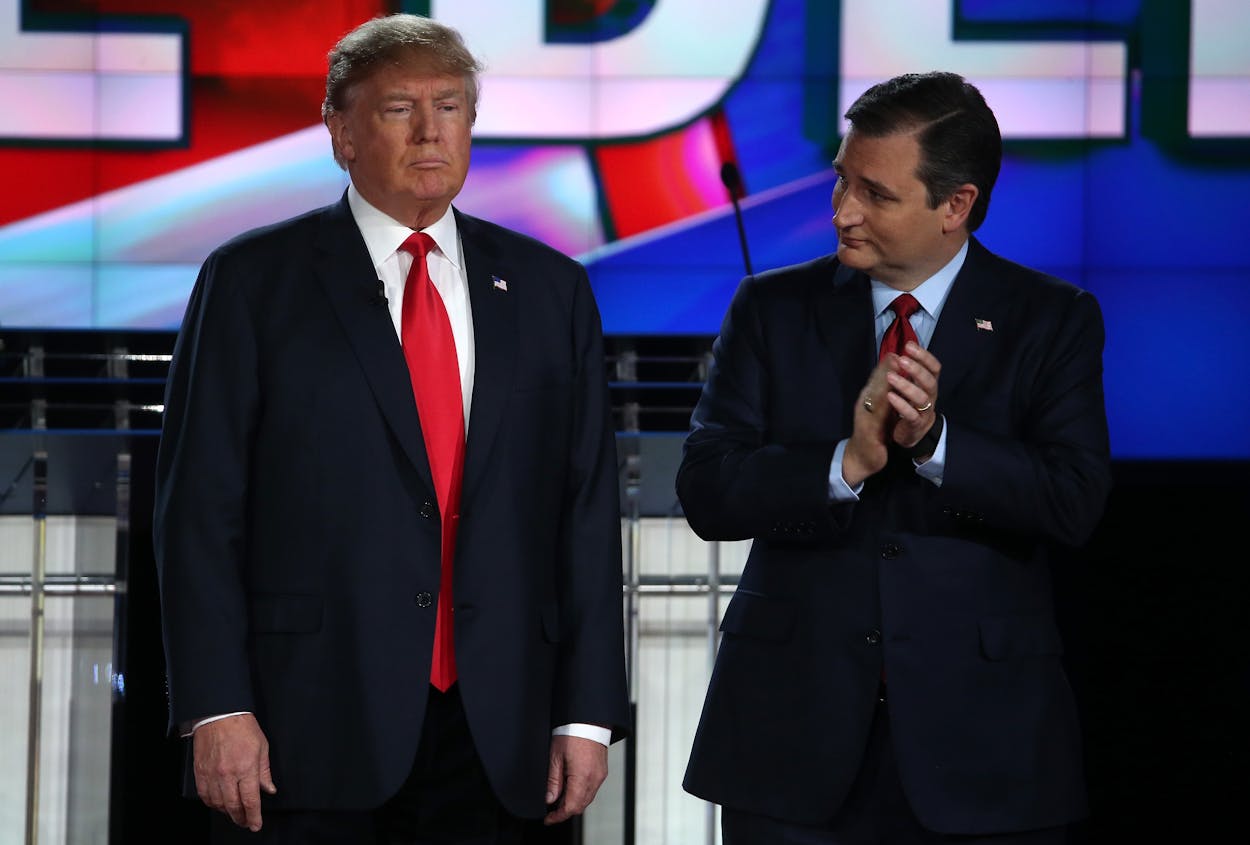Ted Cruz wants, above all else, to be president. He’s spent years working and strategically plotting toward achieving that goal. After endorsing Donald Trump today, Cruz’s chances of becoming president have, it seems to me, nearly evaporated.
I’d heard rumblings last week that Cruz, who had shocked most observers by refusing to endorse Donald Trump at the Republican National Convention in July, was wavering on the subject. So the news that broke today was therefore not entirely unexpected, but it does have a certain surreal quality. This is a disastrously bad decision on Cruz’s part, and one that he will come to regret. He fully deserves the criticism and scorn being heaped on him today and the realization he will have—albeit only now that it’s too late—is that this was not a mistake he could afford to make.
Since Cruz made his announcement on a Friday afternoon when I was busy preparing for the panel that I’m moderating tomorrow morning at the Texas Tribune Festival (“The Future of Conservatism“), I’ll just briefly explain the two latter points.
First, both of the reasons Cruz gave for his decision, in a statement he posted on Facebook Friday afternoon—that he signed a pledge and that Hillary Clinton is unacceptable—are demonstrably ridiculous. Even if you agree that Clinton is more “unacceptable” than Trump, and that a pledge made to the Republican National Committee should take precedence over one’s oath of office and one’s repeated promises to work for the 27 million people of Texas, it remains the case that Cruz signed the pledge last year and could have known, months ago, that Clinton would be the Democratic nominee. If those are his real reasons for endorsing Trump, in other words, he would have done so at the Republican National Convention, in July. In fact, he would have done so in May, at the Republican Party of Texas convention instead of refusing to do so in our interview.
His answer effectively precluded him from endorsing either Clinton or Trump; I noted that at the time, and he didn’t disagree. Beyond that, multiple sources close to Cruz confirmed to me, last week, that he was considering an endorsement. Every single one of them cited external pressure. There was some disagreement about the source of the pressure, but none of them had changed their minds about Trump, and none of them suggested that Cruz had done so. In other words, Cruz’s assessment of Trump’s merits relative to Clinton’s hasn’t changed; what’s changed is his assessment of the relative risks of refusing to endorse Trump.
That being the case, it should be easy to see why this is a mistake Cruz can’t afford to make. To be clear, that’s an analytical comment, not a normative one. I would guess that his endorsement of Trump is an example of Cruz Rule Five (“he’s too smart for his own good”), and—for what it’s worth—I’m not entirely unsympathetic to him. I remember, from our conversation in May, how genuinely distressed he seemed at the realization that Trump would be the Republican nominee. I believe he was sincerely convinced that a Trump presidency would put the country, and the Constitution, in real peril. And I suspect that Cruz, in the privacy of the voting booth, may not tick the box for Trump in November.
At the same time, I’m aware that even before today’s news, it was tricky to persuade anyone to consider giving Cruz the benefit of the doubt about anything—and after today, it will be impossible. Either his endorsement is a pack of lies, or his speech at the RNC was: they can’t both be true. And though it’s possible that “Lyin’ Ted” might still one day become president, the odds, in my view, are now vanishingly narrow. We’ve all heard it a million times: “Everyone hates Ted Cruz.” And now he’s given this faceless “everyone” plenty of reason to do so.







